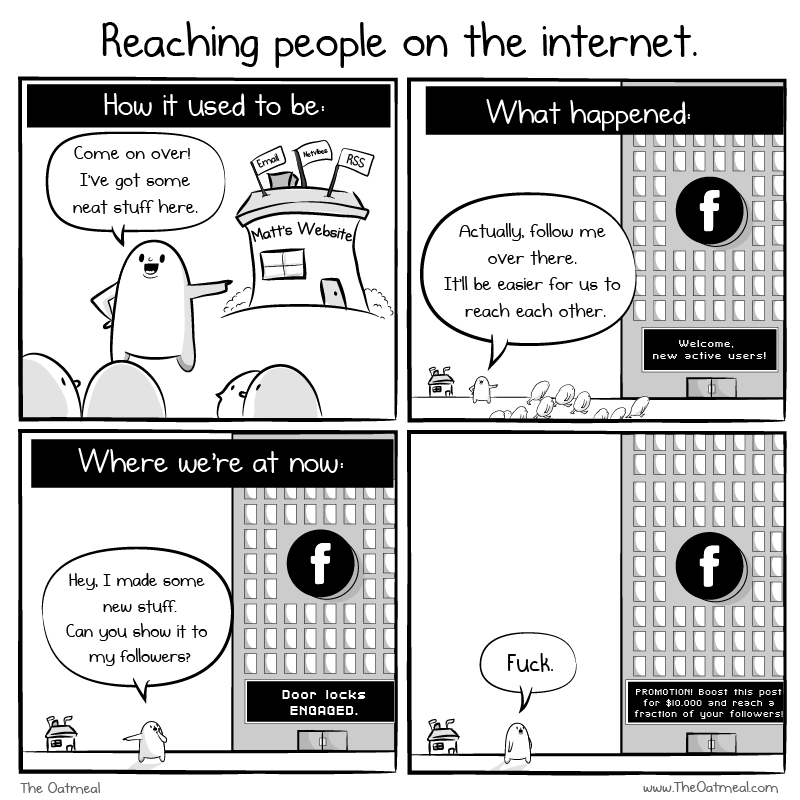That’s Mike Elgan’s advice and it resonates for me. If someone tells me they get their news from Fox and Breitbart that affects my opinion of that person. They don’t give a shit about my opinion, I get that. And if they spend hours a day on Facebook and Twitter (as I did for years), that tells me something about them.
Events this week prove that a social network’s public reputation can sour so suddenly and so thoroughly that, if you’re active on that network, it rubs off on you and damages the reputation of you or your company.
Elgan advises a return to older technologies.
The new imperative is to build your own social networks. Re-embrace older technologies that keep you in control of the access you have to fans, customers, colleagues and the public. […] Favor the content subscription model. Pour your energies and budgets into email newsletters, blogs with RSS feeds and podcasts.

